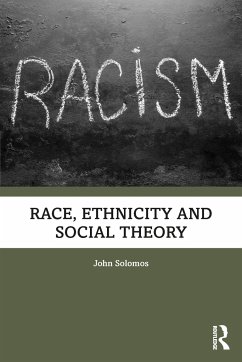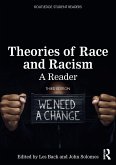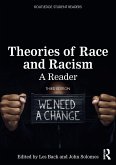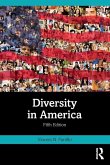Race, Ethnicity and Social Theory provides a critical analysis of the main areas of scholarly research and debate about racial and ethnic relations over the past few decades. The book covers substantive areas of scholarly debate in this fast-changing field, including race and social relations, identities and the construction of the racial other, feminism and race, the relationship between race and nationalism, antisemitism, the evolution of new forms of racism, race and political representation and, more generally, the changing debates about race and ethnicity in our global environment.
The book argues that there is a need for more dialogue across national and conceptual boundaries about how to develop the theoretical tools needed to understand both the historical roots of contemporary forms of racialised social and political relations and the contemporary forms through which race is made and re-made. A key argument that runs through the book is the need to develop conceptual frameworks that can help us to make sense of the changing forms of racial and ethnic relations in contemporary societies. This means developing more dialogue across national research cultures as well as empirical research that seeks to engage with the key issues raised by contemporary theoretical debates.
The book will be of interest to both students wanting to develop a deeper understanding of this area of scholarship and to researchers of race, ethnicity and migration working in various national and disciplinary environments.
The book argues that there is a need for more dialogue across national and conceptual boundaries about how to develop the theoretical tools needed to understand both the historical roots of contemporary forms of racialised social and political relations and the contemporary forms through which race is made and re-made. A key argument that runs through the book is the need to develop conceptual frameworks that can help us to make sense of the changing forms of racial and ethnic relations in contemporary societies. This means developing more dialogue across national research cultures as well as empirical research that seeks to engage with the key issues raised by contemporary theoretical debates.
The book will be of interest to both students wanting to develop a deeper understanding of this area of scholarship and to researchers of race, ethnicity and migration working in various national and disciplinary environments.
'John Solomos is the too-often unacknowledged uncle of UK race and ethnic studies. This work brings together insights from his field-making career, reflecting his often stated belief that a commitment to teaching is central to the responsibilities of a serious scholar. It is destined to become a core work in the field, encouraging new generations of antiracist scholars to learn to think with the seriousness and generosity of the author'.
Gargi Bhattacharyya, Professor of Sociology, University of East London, UK
'Race, Ethnicity and Social Theory is a politically astute, empirically grounded, conceptually sophisticated and open-ended contribution to our understanding of race and ethnicity at a moment when it is most needed. As popular movements and a new generation of activists embrace black lives matter, as statues of slavers and colonists are toppled, as universities grapple with what decolonising the curriculum might mean, and the racial inequalities of everyday life are as entrenched as ever, there couldn't be a better moment than now to take stock of how we got to where we are today and how we might move forward into a more racially just future. This is simply a superb book. It provides a rigorous, intelligent and accessible pathway through the last half a century of race thinking, debate, politics and the racialisation of social relationships, in the UK and beyond. Most importantly, it provides an invaluable resource with which to develop intelligent public conversations about race'.
Caroline Knowles, Professor of Sociology, Goldsmiths, University of London, UK
'Nobody in the world but John Solomos could write such a great book, based on empirical research, theoretical clarity, a solid experience of teaching and an unbelievable knowledge of both academic production and controversies, and the public debates on racism and antisemitism. In a time when huge transformations affect these key issues, which are so central in the political and social life, John Solomos brings to bear a more accurate, precise, and up-to-date analysis. This book will be a classic point of reference for years to come'.
Michel Wieviorka, Professor of Sociology, École des Hautes Études en Sciences Sociales, France
Gargi Bhattacharyya, Professor of Sociology, University of East London, UK
'Race, Ethnicity and Social Theory is a politically astute, empirically grounded, conceptually sophisticated and open-ended contribution to our understanding of race and ethnicity at a moment when it is most needed. As popular movements and a new generation of activists embrace black lives matter, as statues of slavers and colonists are toppled, as universities grapple with what decolonising the curriculum might mean, and the racial inequalities of everyday life are as entrenched as ever, there couldn't be a better moment than now to take stock of how we got to where we are today and how we might move forward into a more racially just future. This is simply a superb book. It provides a rigorous, intelligent and accessible pathway through the last half a century of race thinking, debate, politics and the racialisation of social relationships, in the UK and beyond. Most importantly, it provides an invaluable resource with which to develop intelligent public conversations about race'.
Caroline Knowles, Professor of Sociology, Goldsmiths, University of London, UK
'Nobody in the world but John Solomos could write such a great book, based on empirical research, theoretical clarity, a solid experience of teaching and an unbelievable knowledge of both academic production and controversies, and the public debates on racism and antisemitism. In a time when huge transformations affect these key issues, which are so central in the political and social life, John Solomos brings to bear a more accurate, precise, and up-to-date analysis. This book will be a classic point of reference for years to come'.
Michel Wieviorka, Professor of Sociology, École des Hautes Études en Sciences Sociales, France








